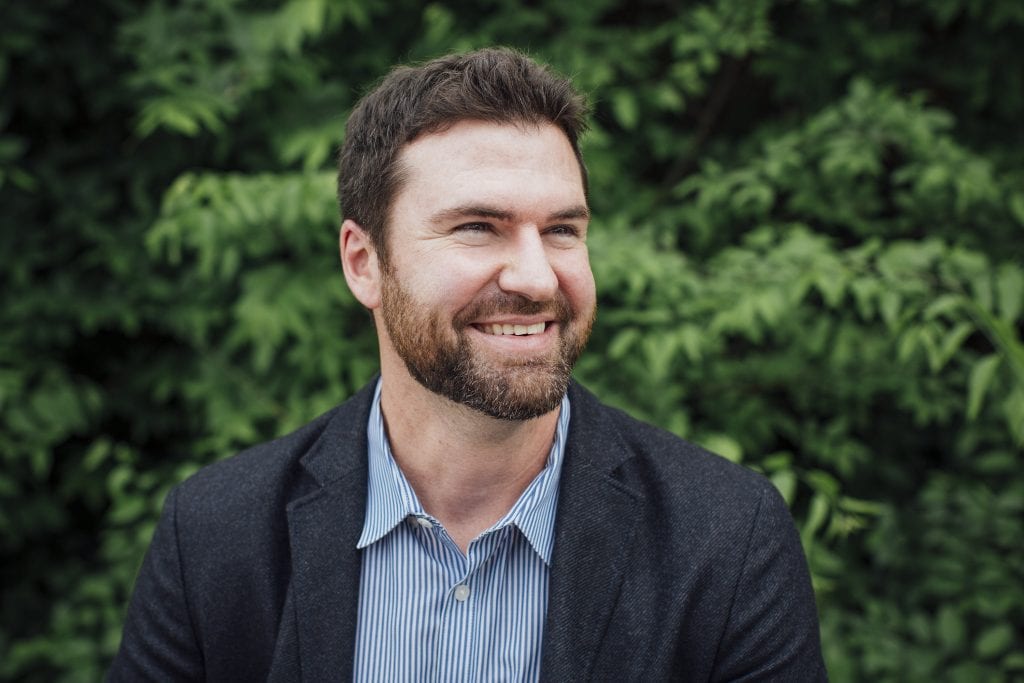Michael Reese, Founder of Jack Mason Brand
About 4 years ago, Reese and his business partner Craig Carter started their own watch and leather goods company out of Deep Ellum, Texas. In just a few short years, Jack Mason has grown into an international operation, focused on both sports licensing and lifestyle goods.
Betts: Did you have a business plan when you started your business?
Reese: Yes. Not only did we make it for our investor, but we make it for ourselves. We used it as a roadmap, because we have always wanted a plan for where we were going. If you don’t know where you’re going, you’ll never get there. Everything that is happening here was a part of our business plan. After all, we asked our investors for a lot of money, so it was out of respect for them that we plan everything out and have a clear direction.
Betts: Do you think business plans are necessary for entrepreneurship?
Reese: Absolutely. It is essential and a key part to starting any business; it makes it a commitment by putting in on paper. Setting goals, whether they are personal or for your business, is very important. Especially if you have an investor, it is mandatory. Use it as a punch list to give you a form of reference. With that being said, everything is flexible. Even though I’ve dabbled in a few different ventures, it always started with a plan.
Betts: What three pieces of advice can you offer developing arts entrepreneurs?
Reese: The first thing I would say is always know where you’re at, and always know where you’re going. Know your industry, and know your business inside and out. Know your current status, and know where you want to be in 3-5 years.
Also, Make sure you’re a good communicator. Talking and networking is important, and you need to make sure you are able to share what you do with anyone you come across. You never know, it could land you your next deal or business partner. Loose lips sink ships- be aware of what you say and who you say it to.
Bear with me, but this last one is important. No one cares about you. I know that sounds pessimistic, and isn’t necessarily true, but that’s the way you have to approach business. Everyone wants a piece of your business, so you need to protect yourself. You have to make things happen; you can’t rely on anyone else because when you’re starting out you’re doing everything by yourself. People will root for you to fail, but take that negative and turn it into fuel for why you do something. If you say you’re going to do something, do it; that will instill trust in your partners and customers so they know they can rely on you. Do your research, you have to take risks so make sure they are educated.
Barbara Roberson, Founder of Oopsie Freight and Wee Pees play tents 
Based out of Dallas, Barbara has started both a salvage retail freight business, in which she rescues quality items that would otherwise be thrown away and sell/refurbish them for a profit. In recent years, she has also started a company that makes decorative play tents for children.
Betts: Did you have a business plan when you started your business?
Roberson: No, I didn’t. However, the only reason that I didn’t was because Oopsy-freight really didn’t require a big cash out. In the beginning, all of the resources I needed didn’t have an overhead cost (Craig’s list, Gmail, etc). Therefore, I didn’t really feel that planning ahead was necessary because I didn’t have much at stake. For Wee-Pees, however, having a plan was much more important because I had to keep all of my capital into consideration.
Betts: Do you think business plans are necessary for entrepreneurship?
Roberson: Yes, but it depends on what you’re going to do and how much financing is necessary and how many moving parts there are. Forecasting and projections are very important for figuring out your financial plan. Even if you don’t need the plan initially, if you want to expand then you have to make a plan in order to penetrate the market.
Betts: What three pieces of advice can you offer developing arts entrepreneurs?
Roberson: First of all, you have to be passionate about what you’re doing. If you don’t love it, you won’t want to put the hours in, and starting your own business requires a lot of time. Secondly, when it comes time to start spending your money, you need to make sure you have a solid business plan. You need to be careful that you’re spending your money wisely and know what direction you’re headed in. Also, always remember that cash is king- do not rely on loans because they can get you into trouble. Try and spend as little money as possible, and only your own money if you can help it.
Steve Deitz, Founder of 900 lbs of Creative 
In the early 2000s, Steve Deitz created his own freelance experiential marketing firm out of Bishop Arts District in Dallas. Now with a team of 8, Deitz regularly works with big names such as Dallas Cowboys, Perot Museum, Shell Oil, HP Enterprise, and more to create innovative experiences.
Betts: Did you have a business plan when you started your business?
Deitz: Yes, I had a business plan when I started and I still do. However, because our company is so focused on technology and trends, it changes all the time; it’s important to be agile and adapt to the industry.
Betts: Do you think business plans are necessary for entrepreneurship?
Deitz: Absolutely. Business plans are crucial to get your ideas on paper and outline a plan. One of the most crucial parts of my business is my advisory board, and having a business plan is important for them so that we can discuss all of the possible obstacles, financials and scale, profits and losses etc.
Betts: What three pieces of advice can you offer developing arts entrepreneurs?
Deitz: More than anything, it’s important to have passion. Find something you’re willing to get a lack of sleep for and go the extra mile. If your team and your customers can see your passion, it makes all the difference- it makes it much easier for them to get behind you. Stoicism is also very important; you need to learn how to control your emotions because you’ll be pushed hard, and you have to be able to look at things objectively. With that being said, you must in tune with your emotions in order to be empathetic towards your clients and your team in order to understand what they need. Also, I cannot stress the importance of culture enough; culture is key. Small companies are thriving right now because it is easier for them to create their own culture and have an environment that fosters creativity. When starting your own company, it is important that you have an understanding of the purpose and values that you want your company to revolve around.
Analysis:
While all three of the entrepreneurs I interviewed come from different backgrounds, they all had similar messages. Each of them expressed that passion is the number one ingredient to being a successful entrepreneur; starting your own business venture requires copious amounts of time and energy, and if you don’t feel compelled by what you’re doing you won’t be able to carry out your concept to the best of your ability. People respond most to those who are clearly excited about what they are preaching, so conveying your passion is the easiest way to get people to get behind you.
It was also made very clear that having a business plan is essential to running a flourishing business. Especially when you have investors involved that are trusting you with their money, or even when just your money is at stake, it is important to be strategic and have a clear objective. You want to make sure that you are making your dollar stretch as far as possible, therefore your financial decisions should be well researched and calculated. Not only is a business plan vital in order to plan ahead, but it is also important to have your ideas in writing so that you can use it as a reference going forward. With this being said, you must keep in mind that business plans should be adaptable; nothing is set in stone and you must be able to adjust accordingly.
Another essential component is to have a strong team and network. Internally, you must insure that your employees are as invested as you are, and truly are behind both you and your concept. You do this by maintaining a positive work environment, and investing in a rich company/brand culture. In addition to your employees, it is crucial to have a diverse team of advisors that can help you navigate the inevitable obstacles that will surface; having the wisdom of people who have been in business for decades is extremely useful. Not only is your team important, but it is crucial to build a strong external network in order to foster new opportunities for yourself. With that being said, you must be prepared to give an elevator pitch about your concept at any time; you never know when you’re going to meet your next business partner or investor. Without connections, your business can’t really go anywhere. Therefore, it is vital that you continue to build your network whenever possible.
Caroline Betts, currently a student in Arts Entrepreneurship at SMU, Meadows School of the Arts, conducted the following series of interviews. This interview series has been conducted, attempting to identify if creative entrepreneurs begin with business plans and if such plans are perceived as necessary. Advice and commentary follow.




